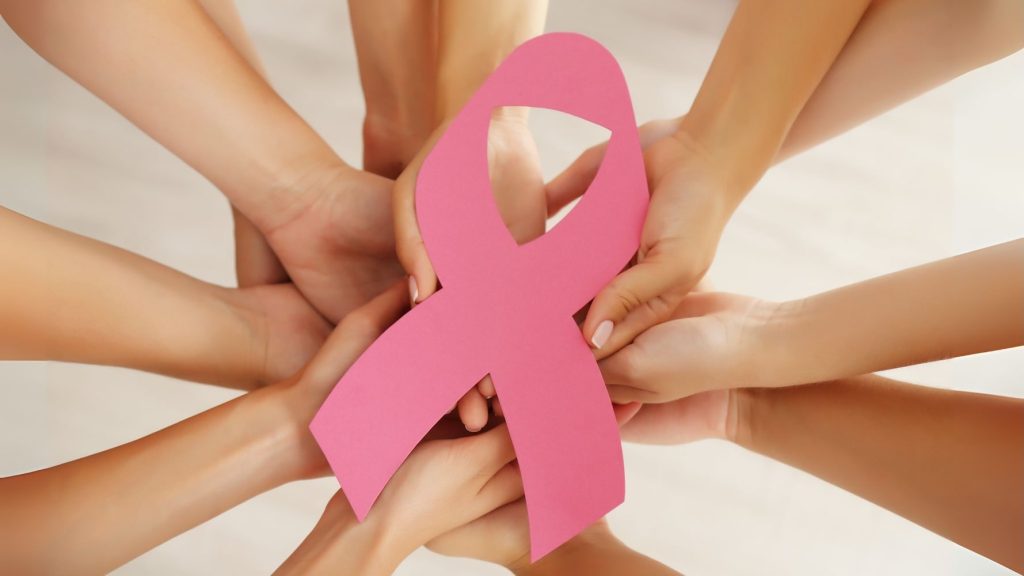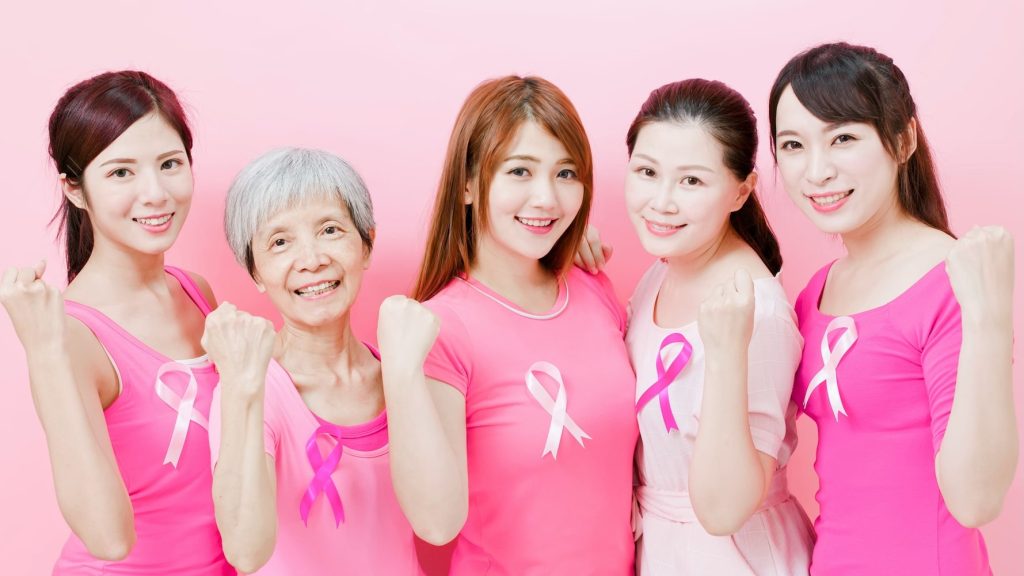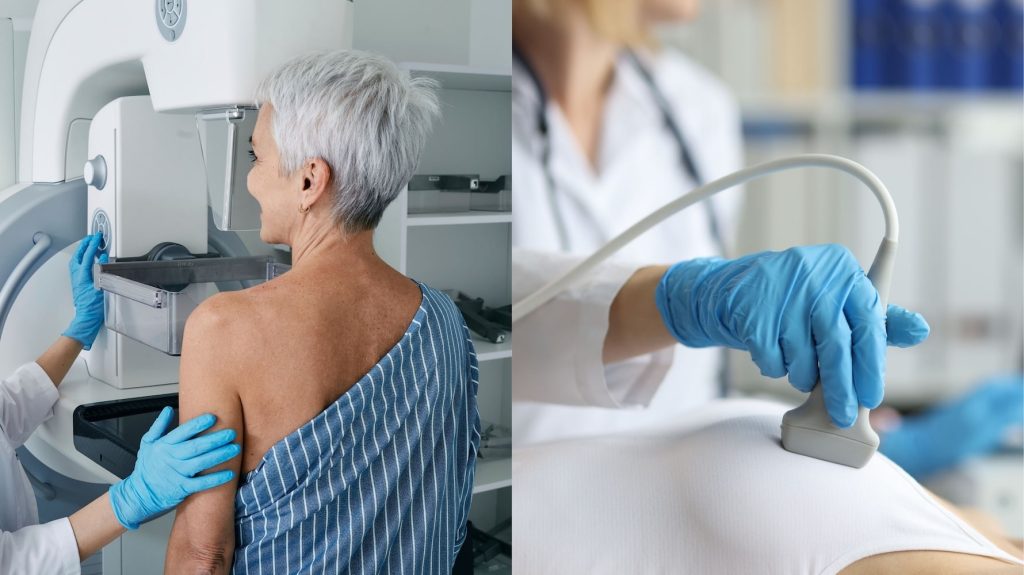Facing a breast cancer diagnosis can feel overwhelming, like the ground has shifted beneath you. Suddenly, you’re navigating unfamiliar medical terms, big decisions and a wave of emotions that are hard to put into words. It affects your physical health, emotional well-being and sense of identity.
This guide is here to support you through every step of your breast cancer diagnosis journey—from recognising early signs to recovery and breast reconstruction after cancer. Whether you’re newly diagnosed or planning your next steps, you’ll find clear guidance on your breast cancer treatment plan, what to expect at each stage and how to find meaningful cancer support in Singapore.

What Breast Cancer Means for Women
A breast cancer diagnosis journey can be life-altering. It doesn’t just affect your health—it can change the way you see your body, your future and your daily life. Many women carry not only the weight of the diagnosis but also the responsibilities of being caregivers, professionals, daughters, wives or mothers. With so much on their shoulders, it’s no surprise that personal health often comes last.
It’s okay if you’ve delayed a check-up or brushed aside a symptom. You’re not alone. But breast cancer doesn’t wait, and your well-being matters just as much as the people you care for. Making time for a screening or a quiet conversation with our doctor can be one of the most powerful forms of self-care.
You don’t have to go through this alone. Today, many clinics offer care that goes beyond just treating the disease. From counselling to support groups, help is available for both your body and your heart. And sometimes, just talking to someone who truly understands can bring comfort and strength you didn’t know you needed.
That’s why choosing a breast cancer treatment plan is more than a clinical decision. It’s personal. It’s about being informed, asking the questions that matter to you, and feeling seen and heard.
Walking Through the Treatment Journey Together
Step 1: Early Detection
Early detection can make a life-changing difference. Common signs of breast cancer include a persistent lump, skin changes, nipple discharge or discomfort in the breast area. However, some cases are asymptomatic and only detected through routine screenings.
In Singapore, women are advised to undergo mammograms every two years starting from the age of 50. For women with a family history or higher risk factors, screenings may start earlier. Available screening options include mammography, breast ultrasound and clinical breast examinations.
These services are accessible through polyclinics, hospitals and mobile screening units deployed across neighbourhoods. Programmes like the Health Promotion Board’s Screen for Life offer subsidised mammograms for eligible women, making early detection easier and more affordable.
Step 2: Diagnosis
After an abnormal screening result or physical sign, diagnostic tests are required to confirm a breast cancer diagnosis. This typically involves imaging tests such as mammograms, ultrasounds and MRIs, followed by a biopsy to examine the tissue under a microscope.
Once diagnosed, the next step is determining the cancer’s stage, which indicates how much it has spread. Staging is based on tumour size, lymph node involvement and whether the cancer has spread to other organs. This helps guide our doctor in recommending an appropriate breast cancer treatment plan.
The diagnosis phase can feel overwhelming, but understanding the process helps you prepare mentally. You may also consider bringing a family member or friend to appointments for emotional support and to help with information gathering. It is important to ask questions, take notes and ensure that you fully understand your diagnosis and options moving forward.
Step 3: Preparing for Treatment
Once a treatment plan is proposed, taking steps to prepare both physically and emotionally can have a positive impact on your recovery and overall well-being.
Physically, this may involve maintaining a nutritious diet, engaging in light physical activity and quitting smoking. These changes can improve your body’s ability to heal and handle the side effects of treatment.
Emotionally, it’s important to acknowledge your feelings and seek support. Talk to your family about your diagnosis, discuss adjustments with your employer and connect with other women who have undergone similar journeys. Support groups and counsellors can help you cope with anxiety and uncertainty.
Creating a personalised breast cancer preparation guide can help you stay organised. This may include treatment schedules, contact lists and a list of questions for our doctor. Preparing well can reduce anxiety and improve your ability to navigate the upcoming phases of care.
Step 4: Breast Surgery Options
Surgery is often a key part of treatment. Depending on the stage and type of cancer, our surgeon may recommend either a lumpectomy (removal of the tumour and surrounding tissue) or a mastectomy (removal of one or both breasts).
Breast cancer surgery in Singapore also includes oncoplastic surgery, which integrates cancer removal with aesthetic techniques to preserve or restore breast shape. This approach can provide physical and emotional benefits, helping women feel more confident after surgery.
Our breast surgeon will guide you through the decision-making process, considering tumour size, breast size, your preferences and whether reconstruction will be part of the plan. A thoughtful and collaborative discussion with our medical team ensures that the surgical approach aligns with your treatment goals and lifestyle.
Step 5: Breast Reconstruction
Breast reconstruction in Singapore offers options for restoring the breast’s appearance after surgery. Reconstruction can be done at the same time as cancer surgery (immediate reconstruction) or later (delayed reconstruction), depending on medical and personal factors.
Common techniques include implant-based reconstruction or using tissue from another part of the body, such as the abdomen or back. The choice of method depends on factors like overall health, cancer treatment plan and desired outcomes.
Discussing breast reconstruction after cancer early in your treatment journey allows our surgeon to coordinate timing and techniques with your oncologist. This integrated approach can contribute to smoother recovery and a more holistic healing experience.
Step 6: Recovery and Life After Surgery
The recovery phase focuses on both physical healing and emotional adjustment. Pain management, wound care and regular follow-up visits with our surgeon and your oncologist are key during the first few weeks.
You may be referred to a physiotherapist for exercises to restore arm movement and reduce stiffness, especially if lymph nodes were removed. Scar management and advice on wearing post-surgical bras or prostheses may also be provided.\
Emotional recovery involves accepting changes to your body and embracing a new sense of self. Some women may experience anxiety or low mood, while others find strength in their resilience. Support groups, counselling and open conversations with loved ones can help build emotional well-being and confidence over time.
Cost of Breast Surgery and Reconstruction in Singapore
Understanding the financial aspect is an important part of planning your treatment. However, it’s important to note that the costs of breast reconstruction in Singapore vary greatly from case to case, depending on the type of surgery, complexity of the procedure, choice of hospital (public or private), and whether additional treatments or reconstruction are required.
In Singapore:
- Lumpectomy (partial mastectomy) in public hospitals typically ranges from S$3,600 to S$6,100 before subsidies.
- Mastectomy (simple, unilateral) may range from S$4,500 to S$7,800 in public hospitals.
- In private hospitals, lumpectomies and mastectomies can cost S$15,000 or more, depending on surgeon fees, hospital class and care complexity.
For breast reconstruction, prices can vary significantly depending on the individual case:
- Implant-based reconstruction typically costs between S$8,000 and S$15,000 in public institutions, and can exceed S$20,000 to S$30,000 in private settings.
- Autologous (flap) reconstruction—which uses tissue from another part of your body—can range from S$15,000 to over S$35,000, especially in complex procedures involving microsurgery or multiple stages.
Do note that more complex reconstructions, such as DIEP flap or free flap surgeries, will generally fall at the higher end of the cost spectrum due to specialised surgical expertise and longer operating time.
Additional out-of-pocket costs may include:
- Imaging tests (e.g., MRI, mammography)
- Follow-up consultations
- Post-surgical garments or prostheses
- Anaesthesia, pathology and inpatient stay (especially in private hospitals)
Breast cancer treatment in Singapore is also eligible for Medisave and Integrated Shield Plans, which can cover a significant portion of surgical and hospitalisation fees.
What This Means for You:
- There is no one-size-fits-all estimate. Your final cost depends on your diagnosis, treatment needs, reconstruction plan and insurance coverage.
- Subsidies and insurance plans can make treatment more affordable, particularly in public hospitals.
- To avoid unexpected costs, it’s strongly recommended to speak with your hospital’s financial counsellor and review your insurance entitlements early in your planning.
Being informed about the financial considerations can empower you to make better decisions, not just about your care, but about preparing for recovery with peace of mind.

Caring Connections: Support for Women Facing Breast Cancer
Going through breast cancer is not just a medical experience—it’s deeply emotional, and at times, overwhelming. But you don’t have to face it alone. Across Singapore, there are support systems designed to walk this journey with you.
Organisations like the Breast Cancer Foundation and Singapore Cancer Society offer meaningful breast cancer support for women, including counselling services, peer-led support groups, wellness programmes and practical resources that can help you navigate both the emotional and physical aspects of recovery.
Whether it’s connecting with someone who’s walked a similar path or joining a fitness session designed for healing, these services can offer comfort, strength and a sense of belonging during a time when you may feel most vulnerable.
In addition, many community centres, NGOs, and hospitals offer workshops, educational talks, and social activities to support both your mental well-being and physical recovery.
Frequently Asked Questions
Yes, many women return to work within a few weeks to months, depending on their job type and recovery progress.
Bring all prior imaging results, pathology reports (if available), a list of questions, and a trusted companion if possible.
No, breast reconstruction is part of restorative treatment and is often medically recommended to support physical and emotional recovery.
Recovery times vary depending on the type of surgery and whether reconstruction is done at the same time. Most women can resume light activities within 2–4 weeks, but full recovery may take several months.
Yes, breast reconstruction can be done later. Some women choose delayed reconstruction to focus on cancer treatment first. This is a valid option, and our care team can discuss how timing may affect your overall plan and outcomes.
Embrace Hope Through Proactive Breast Care at Andrew Lee Breast Clinic
At Andrew Lee Breast Clinic, we recognise that no two breast cancer journeys are the same. From early detection to surgery and breast reconstruction after cancer, your care is guided by expertise and respect for what matters most to you.
Whether you’ve just received a breast cancer diagnosis, are weighing your breast cancer treatment plan, or are standing by a loved one, know that you are not alone. In Singapore, care extends beyond medicine. Emotional support, guidance and community can be found at every stage.
Let us walk beside you with clarity and care. If you’re ready to take the next step or simply need someone to talk to, we’re here for you.
Book your consultation or share this with someone who may need support. Sometimes, a gentle nudge can lead to life-changing clarity.







